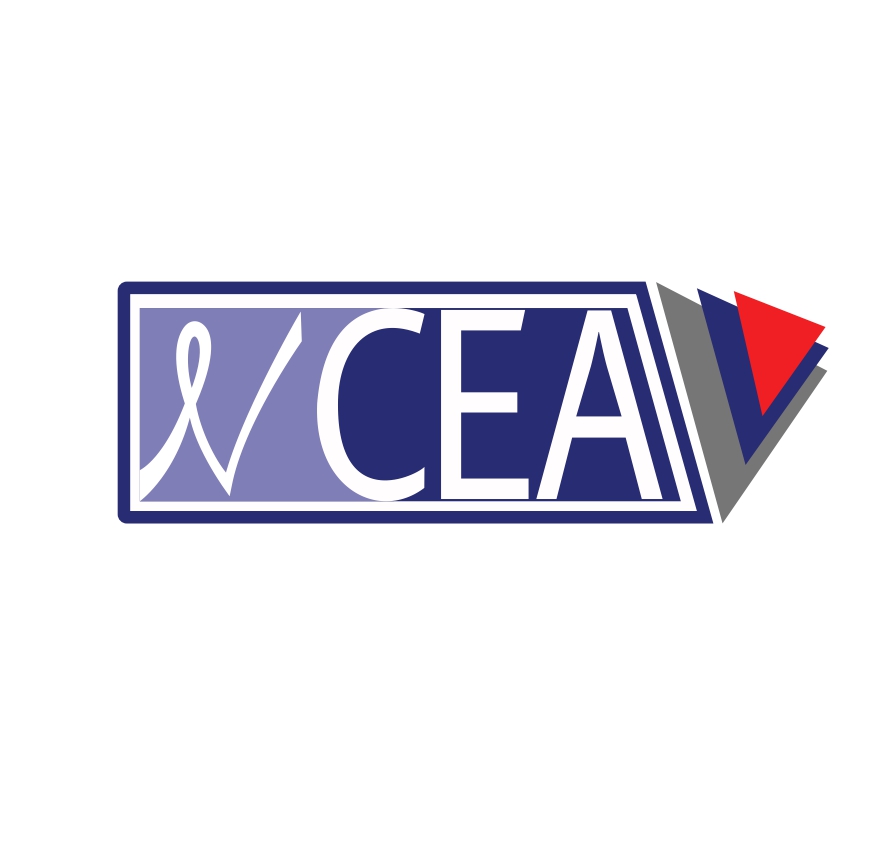FAQs
Frequently Asked Questions
FAQ FOR GENERAL
We offer our seal of approval only to those who meet our stringent standards of quality in education. Organisations endorsed by NCEA are
proven satisfactory in their methods of online teaching, which will give your students peace of mind when relying on you to provide the best
education.
We offer qualifications to organizations conducting courses in a broad range of disciplines including but not limited to: Pro gramming,
Journalism, Digital Marketing, Social Care, Language Education, etc.
The application procedure can be found here. You can access the online Application Form to begin the process of seeking accreditation.
Approval will depend on your organisation meeting our set standards and regulations as set out in our Code of Practice.
You will be required to submit the NCEA online Application Form, which requires details such as your organisation’s name, address and contact details, as well as some general information about the course requiring accreditation. Once you are selected for an accreditation review you will be asked to supply NCEA with additional documentation. This includes but is not limited to your organization’s procedural policies, code of
practice, projected learning outcomes, and the qualifications you wish to offer to prospective students. These documents should be certified copies of the originals. For more details please refer to the How to Apply page.(Link)
Upon submission of your additional documentation, the accreditation process takes 25 working days to one month, but may be prolonged should your organization fail to provide us with all the necessary documentation. To ensure an expedient process please ensure that all of your details and documentation are correct and up-to-date upon submission.
We require strict adherence to all regulation standards, as we need to ensure that all our accredited providers meet the same level of quality.
Should an organisation fail to meet any of our conditions, we are unable to allow our seal to be used. Further, should it come to our attention that a provider no longer adheres the NCEA Code of Practice, the organization shall immediately be stripped of any accreditation.
NCEA conducts random inspections of the courses offered by its accredited providers to ensure compliance in all aspects of that body’s
organizational and teaching methods.
In order to update accreditation, providers are required to submit a Renewal Declaration every 12 months for each course that has been
accredited with NCEA to demonstrate that it continues to adhere to the Code of Practice. The Declaration will also require providers to declare
any significant changes to their course’s assessment policy, teaching staff, management, structure, or content. Our team will determine whether or not such changes comply with the NCEA Code of Practice.
If you have any queries related to our accreditation procedure not covered by this page, please use the contact form or Email us.
FAQ FOR INSTITUTION
A key person at the institution must obtain a copy of the NCEA Accreditation process format and complete the Preparing for NCEA
Accreditation documentation (available via the NCEA Online Center) to qualify with a Compliance Officer. This process must be completed before submitting the final Application for Accreditation and before meeting the Self-Evaluation Report. NCEA will not accept an application for Accreditation without a copy of the Certificate of local registration provided by your concerned person.
Before NCEA will officially accept an institution’s initial Application for Accreditation, the institution must demonstrate that it meets all of the
eligibility requirements set in the NCEA Accreditation Standard.
An application for accreditation is valid for one year from the date it is received by the Commission.
Preparing the Self-Evaluation Report may take only a few months for a small institution or as many as 3 months to 6 months for a large institution. Please contact NCEA regarding a submission timeframe. After the NCEA receives the SER, the NCEA staff will schedule a Readiness Assessment by an expert evaluator. The evaluator will review the SER to determine if the institution is prepared to undergo a full onsite examination by an examining committee.
First time applicants for accreditation are required to undergo a Readiness Assessment by an independent NCEA-appointed evaluator to assist the applicant in preparing for a full on-site examination. As stated in the NCEA Accreditation standards the first purpose of the assessment is to provide a mechanism for NCEA to ascertain if the applicant’s Self-Evaluation Report provides sufficient evidence and information for a successful on-site committee review. Another purpose is to provide the applicant with guidance on what actions to take to get the institution
ready for an accreditation review. The third purpose is to ensure that the applicant meets a minimum level of eligibility qualifications for NCEA
accreditation that would justify the commitment of Commission resources in carrying out a full accreditation examination.” As part of the
Readiness Assessment, both an evaluator and an experienced NCEA staff member read and make notations in the institution’s SER indicating if
an institution did not understand the intent of the statement or its answers were not comprehensive enough. The Readiness Assessment
The report and the annotated SER are returned to the institution. For first-time applicants, the Readiness Assessment provides an intensive,
constructively critical, informative review process of the institution’s SER.
Generally, it could take about 3 months for the entire procedure in fast track if all documents provided immediately. A smaller institution may
be able to prepare for accreditation in as few as months. The Accrediting Commission meets in January, April, July and October, so prospective
applicants are advised to initiate the process at least 3 months before the meeting they wish to have their application considered.
The Accrediting Commission staff of vigilance department is available for consultation by mail, phone, e-mail, or personal visit regarding any questions about the accrediting process, procedures, or standards. Please contact the Commission offices for assistance.
No. This is inappropriate and has the potential to mislead the public about an institution’s affiliation with NCEA.
Yes. Distance study institutions of your country may apply for accreditation. The Commission has a special policy for online & distance institutions in our NCEA Accreditation standards.
FAQ FOR STUDENTS
Accreditation is particularly important to assuring quality of education and oversight of institutional practices. NCEA requires institutions to
comply with standards (detailed in the NCEA Accreditation standards) that:
- Observe ethical practices and procedures in the recruitment of students. An institution must comply with applicable federal and state laws
and regulations pertaining to student recruitment. - Issue an enrolment agreement for all enrolled students which includes information on tuition, truth-in-lending, institution policies, and
refund policies. - Employ faculty who are qualified to teach not only through credentials earned but also in a distance education learning environment.
- Make an official transcript available to students upon request in accordance with the institution’s policies.
- Utilize a policy and procedure for handling student complaints and inform students in writing of that policy and procedure.
- Maintain institutional effectiveness and strategic planning.
• Deliver program outcomes, curriculum and materials at an appropriate level and rigor. - Provide educational and student support services to assist students in meeting their educational needs and goals.
- Implement a comprehensive assessment program to monitor student achievement and satisfaction.
- Demonstrate effective leadership through qualified and experienced administrators, faculty and staff.
- Observe ethical practices in all advertising that accurately reflects institutional information and promotional materials.
- Demonstrate financial capacity and stability.
- Once an institution is accredited, it is eligible to participate, if it chooses to and is otherwise qualified, in a number of financial students
assistance programs, which include: - student loans and grants
- Also, most NCEA institutions offer monthly tuition payment plans. Check with institutions individually for more information.
A high school diploma from an accredited distance education institution is comparable to a resident high school. However, if you are planning
on enrolling in a college or university, please check with the institution to be certain its admissions requirements permit a distance education
or high school diploma.
Acceptance of degrees or credits from NCEA-accredited institutions is largely determined by the policy of the “receiving organization,” e.g., an
employer, a college registrar, etc. NCEA accreditation is not a guarantee that credit will transfer to any college or university. Always check with
the college or university that you wish to transfer your credits to before you enroll in a course.
No. Transfer of credit is a complex matter that is dependent on the decisions by a receiving institution. It involves transfer of credit between
dissimilar institutions and curriculum and recognition of extra institutional learning, as well as transfer between institutions and curriculum with similar characteristics. As their personal circumstances and educational objectives change, students seek to have their learning, wherever and however attained, recognized by institutions where they enroll for further study. It is important for reasons of social equity and
educational effectiveness for all institutions to develop reasonable and definitive policies and procedures for acceptance of such learning
experiences, as well as for the transfer of credits earned at another institution. Such policies and procedures should provide maximum
consideration for the individual student who has changed institutions or objectives. It is the receiving institution’s responsibility to provide
reasonable and definitive policies and procedures for determining a student’s knowledge in required subject areas. All sending institutions
have a responsibility to furnish transcripts and other documents necessary for a receiving institution to judge the quality and quantity of the student’s work. Institutions also have a responsibility to advise the student that the work reflected on the transcript may or may not be
accepted by a receiving institution as bearing the same (or any) credits as those awarded by the provider institution, or that the credits
awarded will be applicable to the academic credential the student is pursuing.





